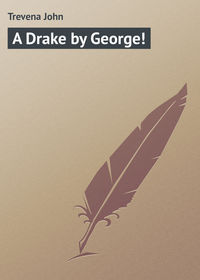 полная версия
полная версияMenotah: A Tale of the Riel Rebellion
Justin had sufficiently trespassed upon taciturnity to jerk forth this incident for the benefit of the Factor, who but expressed sorrow that Denton had escaped the 'pounding' he was legally entitled to. 'I'd have gone to work and kneaded him up if I'd been around,' he said, then inquired who was tending the sick man.
'Rosalie – she look after him.' This lady was wife to a friendly Indian, who could be trusted.
They proceeded for some time in silence. Strangely enough it was Justin who re-opened conversation with the question, 'You going to fight Que-dane?'
'Bet your life,' returned McAuliffe, promptly. 'Going to give him a first-class hiding. You'll see some fun, boy.'
A feeble interest spread over the other's dusky countenance. A light crept into his small eyes. 'He great big man, and strong. No man beat him yet.'
The Factor laughed loudly. 'Don't trouble about that, boy. Tell you I shall knock the spots off him in short order. He's never had a fellow around him who could wrestle before.'
'What you beat him with?'
'Goldam. I never thought of that.' He stopped in the centre of the rough trail and scratched the thick hair at the back of his head for inspiration.
'Say, boy, who lives in the shack yonder?'
'Old wife – by herself.'
'That's good. Hustle over there; scare the old woman into lending you her axe. If she don't want, I'll forgive you if you steal it.'
The half-breed was very nearly astonished. 'Surely,' he exclaimed, 'you not going to kill the man with the axe?'
'My racket, boy. You hump along and fetch it.'
Justin obeyed, and presently returned with the implement, followed at a distance by the inquisitive old wife herself. He came upon his master standing in a thicket of young oaks, which had sprung up in a small fire clearing. The Factor grabbed at the axe and severed three saplings at the roots, then rapidly trimmed them down to a four foot length. This accomplished, he took each stick – they were about three inches in diameter – placed his big foot on the large end, and twisted violently, until they were like ropes. Then he grimly handed them to Justin, the two continued their journey, and later halted before the closed tent of Que-dane, bigamist and robber.
McAuliffe pulled aside the hanging flap, and immediately came upon his quarry within. Indeed, he had taken him red-handed, for the half-breed was seated on the ground in the centre, between his two wives, clothed in nothing more pretentious than a small breech-clout. He had just been oiling his body. The limbs shone like dull copper, emitting an odour evidently not displeasing to a waving cloud of mosquitoes, which hovered around and filled the hot tent with their thin note of defiance.
The malefactor, who was not entirely surprised at the visit, stared heavily at the Factor, while the two wives followed his example. The stolen one appeared perfectly contented with her wrongful owner; the lawful wife seemed to be untroubled by any qualm of jealousy; but McAuliffe had no compunction about destroying the peace of this domestic circle.
'Guess I've caught you all right,' he said, with unction.
Que-dane had no doubt whatever, and began to look a little troubled. He feared the Factor more than any man in the district. So he merely made an awkward movement nearer his legal wife, and discreetly remained mute.
'Come out of it now,' continued the visitor; 'I'm going to talk to you.'
The half-breed did not appear anxious for the conversation, so he added deafness to other defects, and refused to budge.
The Factor frowned capaciously. 'Well, come out you' he ordered, apostrophising the wives, who obeyed with alacrity.
Then McAuliffe rolled up his shirt sleeves – coat he had none – and continued, 'If you won't come when you're called, darned if I won't have to make you.'
He sprang inside the tent, and, knowing the advantage of getting 'first hands,' closed upon Que-dane as he rose from the ground to repel the assailant.
But McAuliffe quickly discovered that he was not to down his opponent at a first onslaught. The half-breed was chiefly himself, and the well-oiled flesh was as difficult to clutch as an eel's body. There was no purchase for the hands, which glided and slipped along the greasy surface in ineffectual fashion. Having the advantage of first catch, the Factor succeeded with his great strength on forcing Que-dane to his knees. But here the profit ended, for the other, with cool deliberation, dived at his opponent's ankles, bringing him down heavily, to the stolid perturbation of Justin, who began to reflect whether, after all, his master would emerge from the struggle with untarnished reputation.
But the Factor, as he himself would have expressed it, was 'wonderful tough.' In spite of years and bulk, the sturdy old northerner received no material damage from his fall, for he was up again in a breath, as full of energy as before.
After more dodging around the narrow space, McAuliffe came in again, this time getting two arms, like a couple of iron bands, round the greasy body of his antagonist. They linked behind, while the pressure soon became sufficient to remind the half-breed that breathing was a chief necessity for existence. So he replied by hurling himself forward with careless violence, succeeding by this manoeuvre in breaking the Factor's grip.
A fresh struggle for supremacy was long and fierce. Que-dane's naked flesh was marked with scarlet lines and patches, where catching fingers had dug in vain; McAuliffe's face glowed with sweat and oil drippings from the half-breed's body. Still they fought and swayed across the narrow space, while the evening shadows began to creep along the ground, and mosquitoes blinded their eyesight.
The round ended abruptly and disastrously for the Factor. He was thrown with considerable force. His body was pressed firmly against the caked mud floor, held down by Que-dane's lubricated limbs. The right arm was free, but bent beneath his body. The position was serious. 'Wouldn't surprise me to hear I was fixed,' he muttered to himself. 'Darn it, every nitchi in the place will start to kick me if I am.'
The two squaws were watching the contest, without displaying the smallest show of interest. Justin had been hovering round the writhing figures, continually expectorating in firework fashion. Now he presented the hammer side of the axe, with a suggestion that he should with it gently tap the victor's skull.
'Git away, boy,' shouted McAuliffe, suddenly. 'Gold am! haven't been trying yet.'
He saw his opportunity. As he finished speech, the tent shook with a convulsive effort. This was followed by a furious howl of disappointed rage – the first sound Que-dane had given utterance to.
Skill had come to the front with valour beaten. The half-breed's hair, which was long and thick, had been plaited by the hands of an obedient wife into a single tail, which fell in a straight black line down his back. When Justin approached with his axe and suggestion, Que-dane half turned, apprehensive of attack from behind. Then McAuliffe made his effort. He forced his body slightly above ground, freed the right arm, then, before the half-breed could turn again upon him, seized the pigtail in his great fingers. With a rapid motion he wound it round the owner's neck, and, with a fresh effort, brought him prisoner to the ground at his side. The next second they rolled over once more, then the Factor assumed the more comfortable position. He knelt upon the captive's chest, and triumphantly called to Justin for one of the oak saplings.
'Told you so, boy. I was only fooling first part. Tell you, it's no trick at all to diddle this chap.'
With deep-throated chuckles, Justin selected one of the twisted sticks and handed it over, while the wives gravely seated themselves to watch further proceedings. These were interesting chiefly to Que-dane, for the Factor at once commenced to bring the stinging fibres across his naked flesh with measured strokes of a muscular right arm. While administering justice, he lectured. 'This'll teach you. It'll be a kind of hint for you not to monkey around after other fellows' wives. Do you catch on, Que-dane?'
The half-breed struggled furiously, howled fiercely, and poured imprecations upon the head of the chastiser. But he could not release himself, and the Factor flogged on, until the tough sapling flew to pieces in his hand.
The wives began to chatter and laugh widely, when the fragments were discarded, and Justin imperturbably handed over the second torturing implement. This was a spectacle of delight not presented to the eyes every day.
Dull reverberations echoed out into the still solemnity of the evening. Indeed, the flagellation was continued with such unfailing energy that even Justin gave an exclamation of dismay.
'Surely I you kill the boy.'
'It'll do him good,' panted McAuliffe. 'Goldam! it'll show him I'm going to be boss around here.'
'See! he jump like a frog,' said the half-breed, more interested than merciful.
'He'll jump like a derned locust before I'm through with him. Pass over t'other stick, boy. This one's getting sort of used up.'
Justin obeyed, but wagged his head. 'You kill him. He not jump any more. He lie quiet now.'
It was as he said. Que-dane had ceased struggling and profaning. Now he lay along the ground, limp and motionless.
'He's right enough. Only shamming a bit.' Then he ceased his muscular exercise, and bent over the prostrate figure. 'See, here, Que-dane, are you going around wife stealing again?'
There was no answer nor motion, while Justin shook his head again.
'You're right, boy. I've chloroformed him, so he's missed the lecture I was going to let him have. It'll be a wonderful good lesson, I reckon.'
'You beat too hard,' said Justin, bending over the bruised body, and touching the injuries with dark, deft fingers.
McAuliffe stretched his limbs luxuriously. 'Pshaw! don't trouble about that, boy. You get to work and take the woman back to her husband. Tell him he's got me to thank for seeing her again. I'm going down to the river to wash some of this dirt and oil off my hide. Give me the axe; I'll leave it with the old wife as I come along.'
Justin gave a grunt of compliance, then walked over to the rescued woman and pulled her up by the arm. Accustomed to obedience she followed him, but whether she was anxious to return, or willing to stay, did not appear. None could have told. Such a thought, likely enough, did not trouble her own brain.
The two disappeared along the forest trail as the moon came up over the ledges. McAuliffe prepared to descend to the river, but first he paid attention to the half-breed's lawful wife.
'There's a job for you,' he said, looking over the bowl of his pipe, and raising a sulphur match, which spluttered with blue light in the darkness. 'Guess 'bout best thing it can do, is to look after what's left of your darned thief of a husband.'
CHAPTER VIII
THE PIERIAN SPRING
That same evening, the old Antoine, after listening to the Chiefs last tale of sorrow, sought Menotah in forest and by river, forgetful of age and weakness. At nightfall he came upon her, tripping lightly along the path, with song on her smiling lips and the usual joy at Tier heart. He stopped and drew her – anxious to please, though unwilling to obey – aside to his own tree-environed hut.
Here, with the dramatic force and fantastic word-painting of his race, amid the long blackening shadows, he disclosed his heart. He spoke of the mysterious death of Muskwah, on the stricken mind of her father, and finally appealed to her, by all she held sacred, to return to the people who were her own, to break from the perfidious white, who would soothe the mind with flattery, while with deceit he broke the trusting heart.
The Ancient spoke without previous reasoning, for he had sufficient knowledge to understand that opposition must ever increase determination. At that hour he entertained but one central thought, namely the freeing of Menotah from the life bondage she was accepting. Here was the single bright spot in a dark heart, the only elevating attribute of an embittered nature, his love for the happy girl, who had sprung among them, as he himself had often expressed it, 'like a solitary flower waving in the heart of the rock waste.'
With her customary careless air, Menotah listened to the Old man's eloquence, hands clasped behind her back, radiant eyes wandering from point to point of interest. When he paused, before a fresh effort, she drew a little away and said quietly, 'I am sorry Muskwah is dead.'
So in truth she was, though with the kind of sorrow that breeds joy. For Lamont had assured her how necessary had been his removal. She understood that the Indian had sworn to take her lover's life; that if one was left the other must go. It was far better to lose Muskwah than her handsome white. So she was resigned, and looked upon the murder as part of the dark lot of necessity.
But when she spoke there was no emotion of the voice, nor tear in the eye. This was so evidently a lip sorrow that Antoine's anger ebbed forth in reproach.
'You say there is grief at your heart, child, yet you will give no sign. The man was your lover, and now is dead. In the camp there are maidens, whom he was never wont to favour more than with the passing glance. But these beat their breasts for the sorrow of his end. You, for whom he would have dared all, stand unmoved, and speak of your grief in tones that well might express joy.'
Menotah's soft brow doubled in a frown. 'You are over-ready with words, old Father. Remember, T have cast aside childhood, and may therefore know my own mind. He, who has gone to the shadows, was no lover of mine.'
'You lie, girl,' cried the Ancient, smiting a feeble palm upon his staff. 'Has not the old Chief, your father, told me of his favour towards Muskwah? More, the young man himself has spoken of his warm hope. Many a time did he tell of his love, beneath the still evening, when he sought me for counsel.'
'Did the Chief also tell you that I looked upon Muskwah with eyes of love? Did the young man come ever with the tidings that I had promised to be his bride? You would ask me riddles, old Father. Now must you also be ready with answers.'
''Tis not so. You are but a girl, and one made to obey. Since your father chose, with the wisdom of age, a husband for you, it was your duty to receive him, and thank the Spirit that he had sent you so perfect a man. You know not, child, the peril that lies in self-choice.'
Menotah stepped forward with all her lithe grace. She raised her beautiful features to the coloured air of evening, while the cheeks warmed in a glow of anger. Then she parted her proud lips for reply.
'I have not your learning, old Father, for I am but a girl, yet one who would wish to know. But I am the equal of those who call themselves men. You are wiser? I can draw you from your knowledge path with a glance. You are stronger? I can disarm you with smile or frown. I can outwit you in your slow movements. Now you would hold out to me advice. I scorn it, though I have listened for the sake of the love you bore me once. But when you cast blame at me, I will throw back your words and tell you that I have planned out my own life path, that I will follow it to the end, in spite of you and all. Do you heed, old Father? Once you taught me the power of ready speech. Now it is the master who is put to silence.'
The Ancient tottered to the door of the hut, then paused, leaning in helpless fashion upon his staff. His shrunken form seemed more dwarfed than ever, the wrinkled face more deeply lined. There was suffering in every slow movement.
Weakly he quavered forth, 'I am old, so old that I have lost count of the years in the past. Now my age is mocked by those who were crawling children when I was already weak with time. Is it to be sorrow to the end, nothing but sorrow, until my body is brought to the fire, and memory fades away?'
The girl was touched by her old mentor's genuine misery. 'Surely,' she said in soft accents, 'none may pity those who sorrow when there is need to rejoice. Old Father, I would not cause you suffering.'
The dull ears were quick to note the change in voice. All that was good in his withered heart poured from him, like a death gasp, in a last pitiful entreaty, —
'Have I not always loved you, daughter, child of the laughing heart? Even now would I have shown you hatred, for loving one of the hated race, but I could not. Love is stronger than mind, greater than Nature, for it conquers both, and binds them down in chains. It must live and burn, nor may it be quenched at desire. Child, fair child, by such love – the only gift an old man can give – I pray you, be guided by my counsel. Come back to your people, and forget the past. All will stretch forth arms of love, to clasp you close. There will be joy in the encampment, with a song at every heart. For the tribe will not lose the sunshine, its morning and evening light. See! I am an aged man, and I beg this of you.
'Well can I look upon the days when you were but a crowing child. Then I would raise you in my arms and clasp you to my shoulder, while you would lift your baby head to smile into my face. Then I first felt the love fire stealing silently from your holding limbs to my old heart. So in the white winter I would clutch you to my heart, to warm the body which had never known the power of love. Also, when you were older, with uncertain steps you would walk at my side, while I would point out tree and rock by name, that I might list in to the music of your voice raised to imitate the sounds.
'Yet seasons came and went, each finding you beauteous, and leaving you more perfect. But one day, when I gazed on you in the sunlight, I knew you were formed to a woman, a being enriched with what loveliness and grace the Spirit may give. Jealously I watched you, flitting lightly, as the wind-borne flower blossom, from forest to river, always with the pure joy smile and the same heart gladness. Then I knew we had truly given you the name of Menotah – the heart that knows not sorrow.
'Then the white company came to our land. I feared, for I saw your beauty; also I knew the black hearts of those who had robbed us of our own. Yet now that which I have feared and fought against has befallen you.
'Menotah, daughter of love, light of my age, listen once again to the weak old Father. Grant me that for which I ask. See! I will come to my knees; I will kiss your hands. Never have I humbled myself to any before. Child! give me back my love, and hear my words.'
Tears of heart grief coursed drearily along the cheek wrinkles. His clenched hands shook, while the senile body trembled with emotion. The words fell without meaning against his ears. Sad thoughts were at his heart, and the tongue gave utterance, but whether the two agreed he might not tell.
He had cause for sorrow; for he spoke truth, when he said the girl before him was the only being he could love. Now the great affection, enshrined in a weak body, was held a thing without worth; it was to be laughed at and cast aside. A single satisfaction remained, and that a sad one. Future might bring change, she might yet learn that the love she now discarded was a thing unchanging, which would burn at the time of need with the steady flame of constancy. After the reckless passion of youth, this would be the final haven of shelter, the last rock on which the broken soul might pause and rest a while, before continuing the pitiless march of despair.
'Girl, I have done. Forget an old man's tears. Yet bear in memory one thing: when his aid is needed, he will be found, with hand outreached – to save, or to avenge.'
The last word fell forth in a sharp whisper. Then he leaned in exhaustion against the log wall, while there was silence save for his deep breathing. Menotah stood near, a resolute determination upon her paler face, defiance in every proud pose of her body. Presently she spoke, —
'Better had you saved breath and strength by silence, old Father. Must I again say that I have my will, that none shall turn me from following the desire of my mind?'
'I but spoke the innermost thought, child. Perchance it has given you pain.'
The Ancient was humbled in his weariness.
'It was as casting a handful of feathers to the wind,' said the rebellious girl. 'Even the memory has now faded.'
He raised his head half fiercely. 'It will return. A time lies in the future when the echo of my words will deafen your hearing. You will come back to me then. Yes, you shall return, and pray for my aid.'
'I shall not need it. There will be one to protect me, stronger than you.'
He shivered as her words touched him. 'But I look forward, child. I gaze into the black shadow beyond. My eyes are clear in spite of age, while yours are blinded with mistaken trust.'
He cast off his weakness and faced her. The blanket crawled from his lean shoulders and rustled to the ground. The eyes shone wildly, with that strange, prophetic instinct of the uncivilised mind.
'I tell you, girl, that time shall come. Even now it is not far distant. Then you will seek me out, you will creep to me with a prayer on your white lips. You shall come as a suppliant to me, seeking vengeance on the head of him you now proudly call your life support.'
Night had now fallen; the forest had grown black and weird; shivering spindles of the northern lights crept tremulously, with whispering movements, backward and forward across a blue-white sky.
Menotah stepped back in all her happiness. Then her bright laugh rang forth, drowning, for the minute, soft moanings of the night breeze in the tree tops.
'Laugh, girl; yes, laugh. It gives me joy to hear your happiness once again. In the coming sorrow I shall never listen to that sound which has so often brought warmth to my weak heart.'
She laughed again, while the pines shook and muttered. 'You shall hear my laughter while you walk in life,' she cried merrily, 'unless you would stop your ears to it. Old Father, I shall leave you to your sleep. You are speaking on strange things to-night.'
She picked the blanket from the ground, and arranged it, with soft, womanly attention, round his body. Then she took his arm and led him to the door.
'It is a truth,' he quavered. 'Surely as to-morrow's sun will kiss yonder trees, shall you cry for vengeance on the betrayer.'
With a slight shudder – the night air was chill – Menotah stepped back from the hut. 'You cannot kill my heart with your bodings, old Father,' she said sternly. 'To-morrow, perhaps, you will speak in a different manner.'
But, at the moment of departure, a tall figure, enveloped in a long cloak, came quickly from the shadowy trees in ghostly fashion. It might have been man or woman. As this apparition reached the clearing round the hut, Menotah beheld it and cried aloud with startled surprise.
The old Antoine came to the door at the sound. But when his eyes fell upon the cloaked figure, a mighty fear of the unknown overwhelmed him.
'To the water, child!' he cried shrilly. 'Tis the Mutchi-Manitou. He comes from the swamp to seize you. To the water! His power is only upon land.'
But she showed no such fear. She merely caught the black cloak, and said, 'You should not be here. Why have you come?'
'You haven't been near me all day,' said the figure. 'I am out of food, and hungry.'
She drew this apparition back to the forest with eager hands. 'I will come when the moon shines, and laugh at the spirits of the dead. But there is someone within the hut.'
The figure stepped away silently, while Antoine came feebly forward.
'What is this, child?' he asked, yet with tone of suspicion.
Menotah turned to him in her liveliest manner, and again drew him back to shelter. 'We two have looked on much to-night, old Father. We have seen and spoken with the evil one himself.'
Then her joyous laughter rose again and circled in the night.
CHAPTER IX
THE LAUGH THAT DIED
That short season, which northerners compliment by title of summer, had almost come to its last day of warmth. There were wonderful colours by day, with clouds of floating gossamers at night. Occasionally the wind veered, then brought along from the Arctic shores icy blasts, which angrily bit with foretaste of approaching winter.





